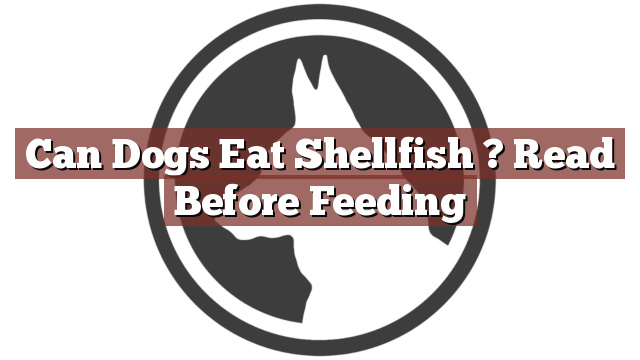Understanding Your Dog’s Dietary Needs
As responsible pet owners, it is crucial to understand our dog’s dietary needs in order to provide them with a healthy and balanced diet. Dogs, being omnivores, can consume a variety of foods, but not all human foods are suitable for them. It is important to know which foods are safe and beneficial for our furry friends and which ones can pose potential risks.
Can Dogs Eat Shellfish? Read Before Feeding
Can dogs eat shellfish? This is a common question that arises when we are enjoying a delicious seafood meal and our pets gaze at us with longing eyes. While shellfish may seem like a tempting treat to share with our canine companions, it is essential to consider certain factors before feeding them to our dogs.
The answer to the question "Can dogs eat shellfish?" is yes, but with several considerations. Shellfish such as shrimp, crab, and lobster can be safe for dogs to consume in moderation, as long as they are properly cooked and do not contain any seasoning or additives that could be harmful to them. It is crucial to remove shells, tails, and any other potential choking hazards to prevent any accidents. Additionally, some dogs may have allergies or sensitivities to shellfish, so it is important to introduce them slowly and monitor their reactions.
Pros and Cons of Feeding Shellfish to Dogs
Feeding shellfish to your dog can have both pros and cons. On the positive side, shellfish are a great source of protein, essential fatty acids, and various vitamins and minerals. They can provide your dog with a nutritious boost and even promote a healthy coat and skin. However, it is important to note that excessive consumption of shellfish can lead to digestive issues such as upset stomach, diarrhea, or even pancreatitis. Furthermore, shellfish can be high in cholesterol, so dogs with certain health conditions, such as kidney disease or pancreatitis, should avoid them altogether.
In Conclusion: Weighing the Risks and Benefits of Shellfish for Dogs
In conclusion, dogs can eat shellfish, but it should be done with caution and in moderation. Before introducing shellfish into your dog’s diet, consult with your veterinarian to ensure that it aligns with your dog’s specific dietary needs and any existing health conditions. Remember to always remove shells and any potential choking hazards, as well as avoid any seasoning or additives that could be harmful to your furry friend. By weighing the risks and benefits, you can make an informed decision about whether to include shellfish in your dog’s diet.
Thank you for taking the time to read through our exploration of [page_title]. As every dog lover knows, our furry friends have unique dietary needs and responses, often varying from one canine to another. This is why it's paramount to approach any changes in their diet with caution and knowledge.
Before introducing any new treats or making alterations to your dog's diet based on our insights, it's crucial to consult with a veterinarian about [page_title]. Their expertise ensures that the choices you make are well-suited to your particular pet's health and well-being.
Even seemingly harmless foods can sometimes lead to allergic reactions or digestive issues, which is why monitoring your dog after introducing any new food item is essential.
The content provided here on [page_title] is crafted with care, thorough research, and a genuine love for dogs. Nevertheless, it serves as a general guideline and should not be considered a substitute for professional veterinary advice.
Always prioritize the expert insights of your veterinarian, and remember that the health and happiness of your furry companion come first.
May your journey with your pet continue to be filled with joy, love, and safe culinary adventures. Happy reading, and even happier snacking for your canine friend!

